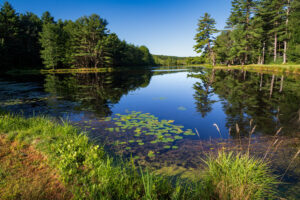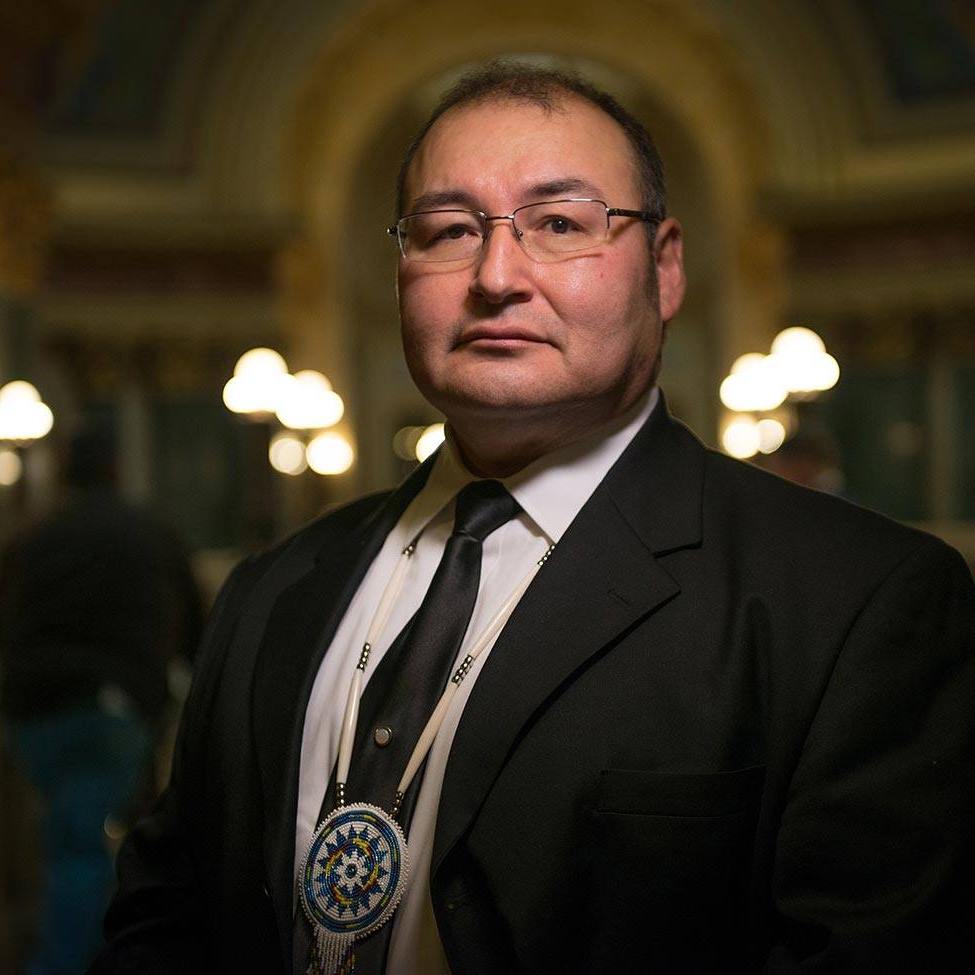
- This event has passed.
Water@UW-Madison Spring Symposium
Celebrating 10 Years: Reflecting on the Past, Looking Toward the Future
Water@UW-Madison is excited to announce its 2024 Spring Symposium, taking place on Monday, May 6th at Union South in Madison, WI.

As we celebrate our 10th anniversary, we want to reflect on the incredible work accomplished in our water community. We invite you to join us for an afternoon of talks showcasing diverse and impactful water research (2-5pm), followed by a networking mixer and opening reception for the Flow Art & Science Project (5-7pm). Enjoy appetizers, a cash bar, and ample time to connect with colleagues and forge new collaborations.
The symposium will be held in-person.
Our Keynote Speaker will be: William “Nąąwącekǧize” Quackenbush. 
- Ho-Chunk Nation Preservation Representative
- Ho-Chunk Deer Clan Tribal Member
- Tribal Historic Preservation Officer
- Cultural Resources Division Manager
In 1998, William began a career in the Ho-Chunk Nation Heritage Preservation Department as a Land Specialist focusing on Realty, Land into Trust Applications and Cultural & Natural Resource Management. In 2004, the Cultural Resources Division requested for William to be transferred to their Division to become the Tribal Historic Preservation Officer (THPO) for the Ho-Chunk Nation, who was at that time creating their HCN THPO program to address tribal preservation needs. William has served as the HCN’s THPO from 2006 to present. In 2006, William became the HCN Heritage Preservation Department – Cultural Resources Division Manager.
William’s current responsibilities are:
- Tribal Historic Preservation Officer (THPO) – 2005 to present
- Cultural Resources Division Manager (CRD) – 2006 to present
- NAGPRA Designee Alternate – 2005 to present
- Ground Penetrating Radar Operator (GPR) – Certified 2002 to present
- Ho-Chunk Nation Tribal Historian – 2004 to present
- Ho-Chunk Nation Tribal Monitor – Certified 2012 to present
- Ho-Chunk Nation Fire Investigator – Certified 2008 to present
William currently holds a seat on the following State, Federal or National Boards/Committees:
- Wisconsin Inter-Tribal Repatriations Committee (WITRC) – President
- Kickapoo Valley Reserve (KVR) – Environmental Seat
William has served on the following Boards/Committees/Services:
- National Association of Tribal Historic Preservation Officers (NATHPO) – Board Member
- Sauk County USDA/FSA Committee – Tribal Minority Advisor (Maximum term)
- Millston Fire & Rescue – Assistant Fire Chief (Retired)
- Mississippi Valley Archaeological Center (MVAC) – Tribal Advisor
- Fox / Wisconsin Heritage Parkway – Board Member
William receives preservation and cultural support, guidance and/or advice through:
- Ho-Chunk Nation Heritage Preservation Board – comprised of 1 HPD Executive Director and 5 Board members, with proficient traditional cultural knowledge in their own fields.
- Mission Statement: “To protect and preserve the HooCak culture and heritage as living forces in the lives of the HooCak Wajic. To nurture our Nation’s culture – to strengthen it as a living source of identity and pride for our People.”
- Ho-Chunk Nation Traditional Court – comprised of 12 Traditional Tribal members and alternates representing each of the 12 Clans who are proficient as cultural advisors.